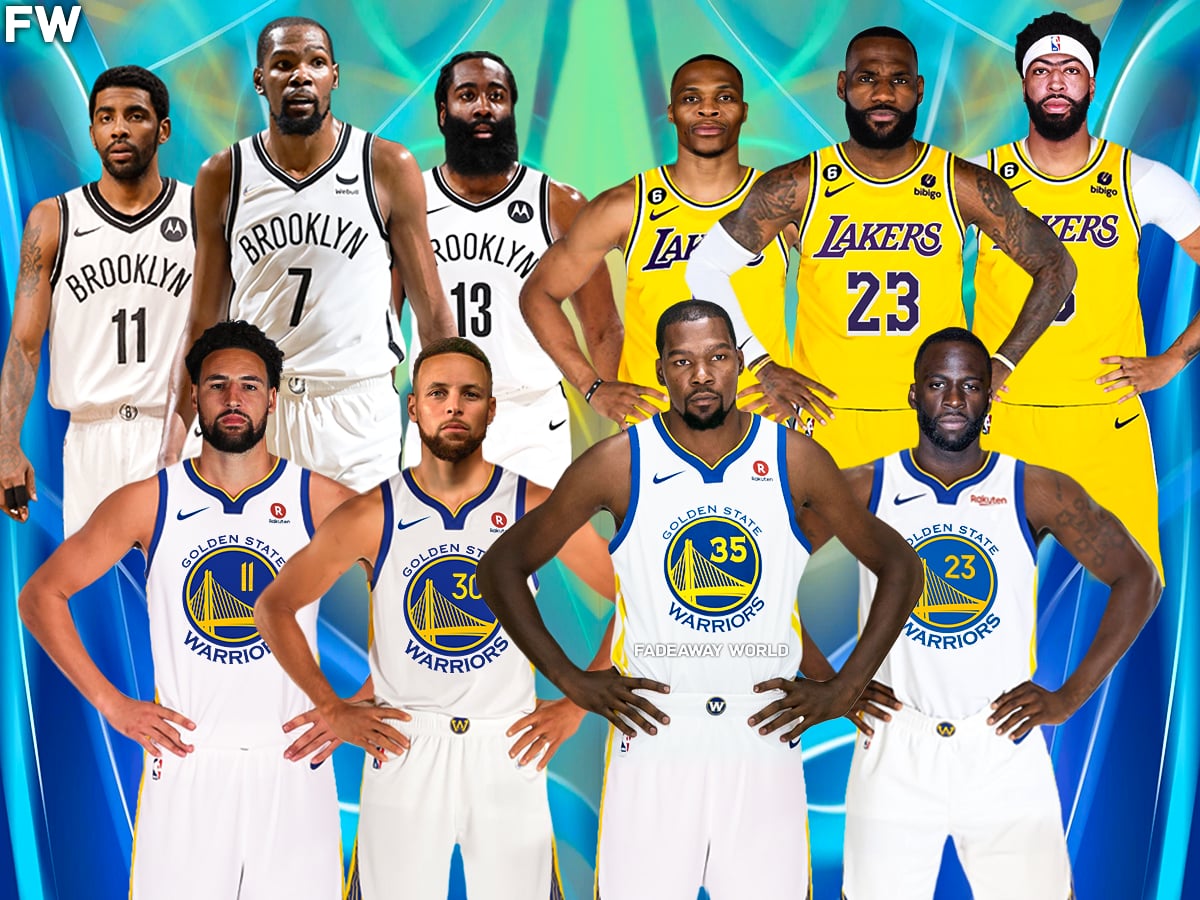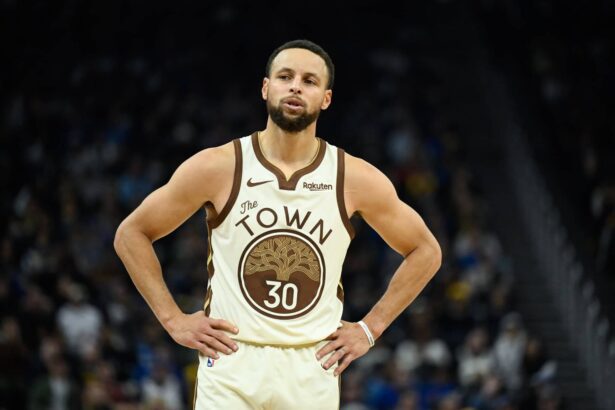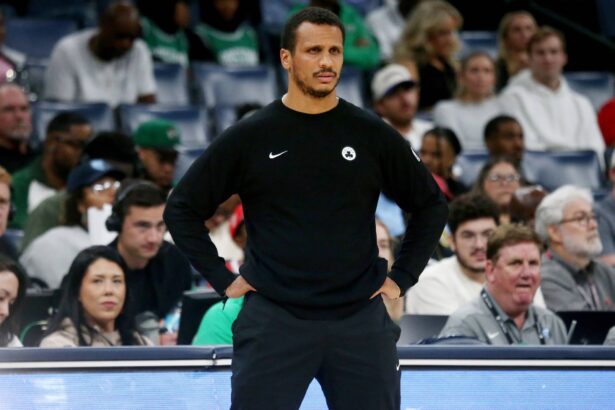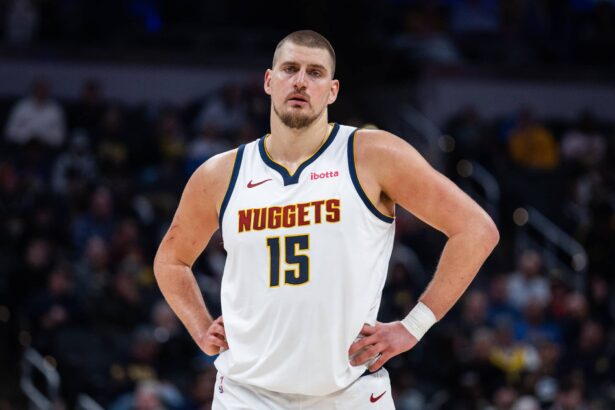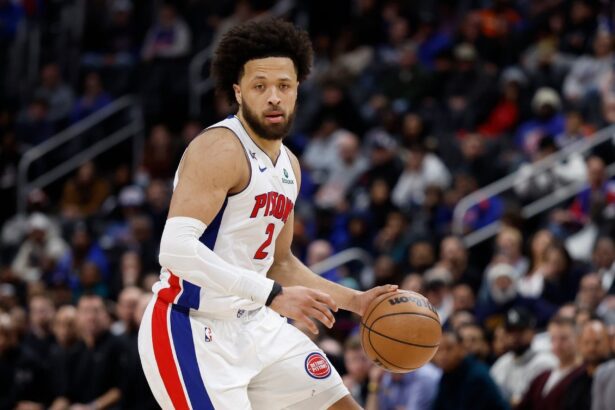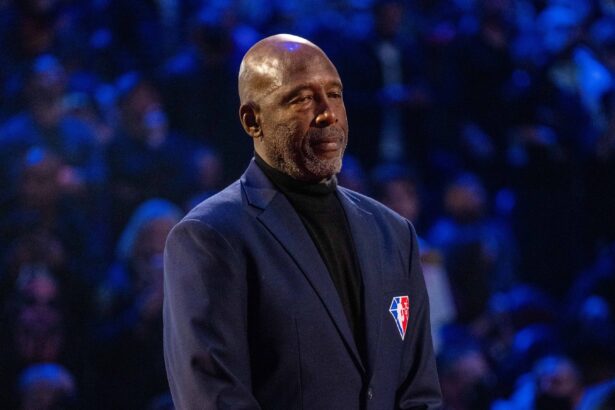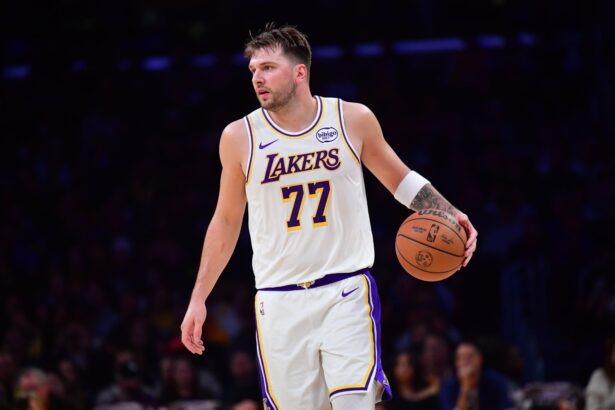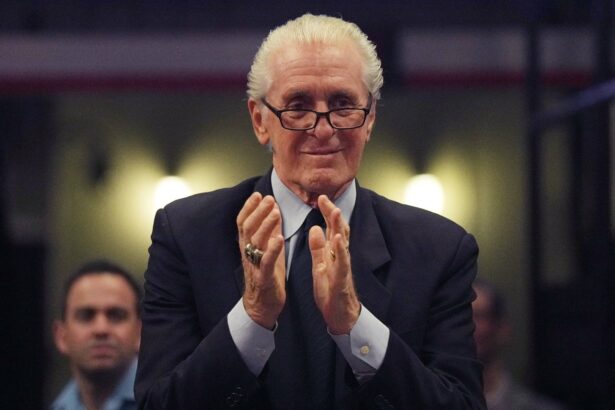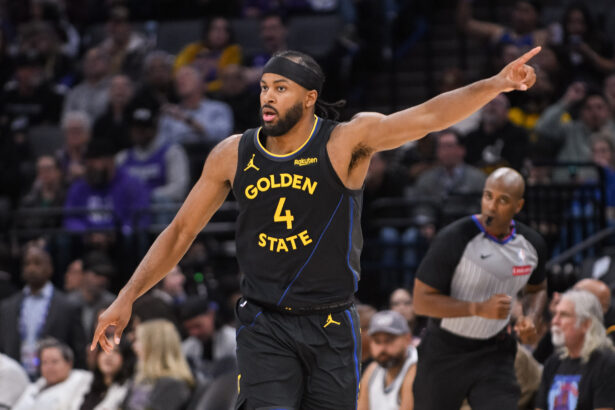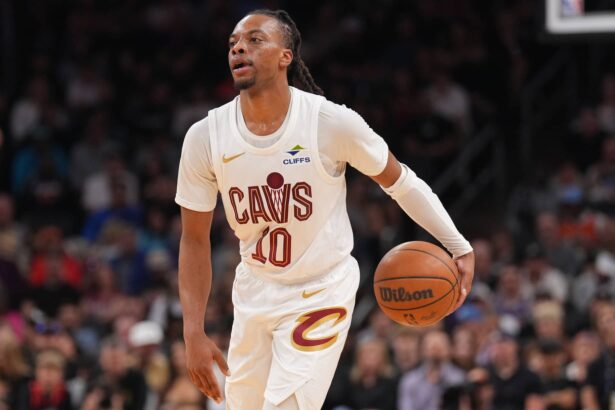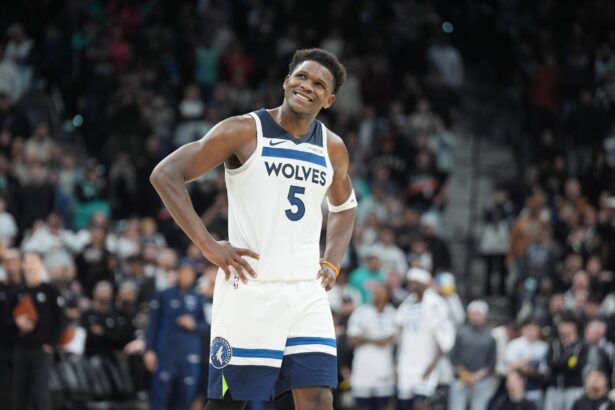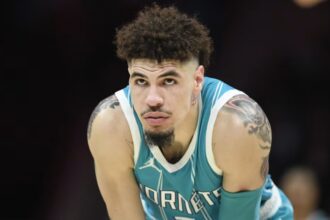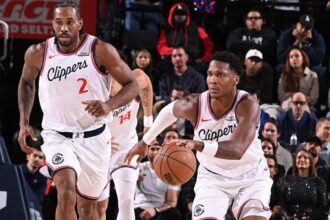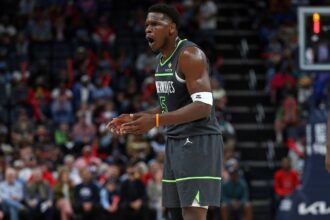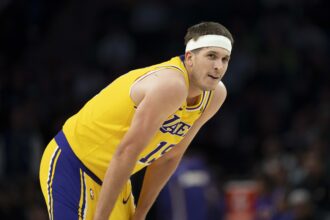In the NBA, it’s not just about who you love—it’s also about who you love to hate. Over the last 10 years, certain teams have managed to rub fans the wrong way, whether it’s through their on-court antics, controversial players, or simply because they keep winning. From superteams that dominate the league to scrappy underdogs who refuse to back down, these franchises have become the villains of the basketball world. Whether you boo them every chance you get or secretly admire their swagger, here are the ten most hated NBA teams of the last 10 years. Let’s break down the moments, the players, and the rivalries that have fueled the fire of fandoms everywhere.
1. 2017 Golden State Warriors
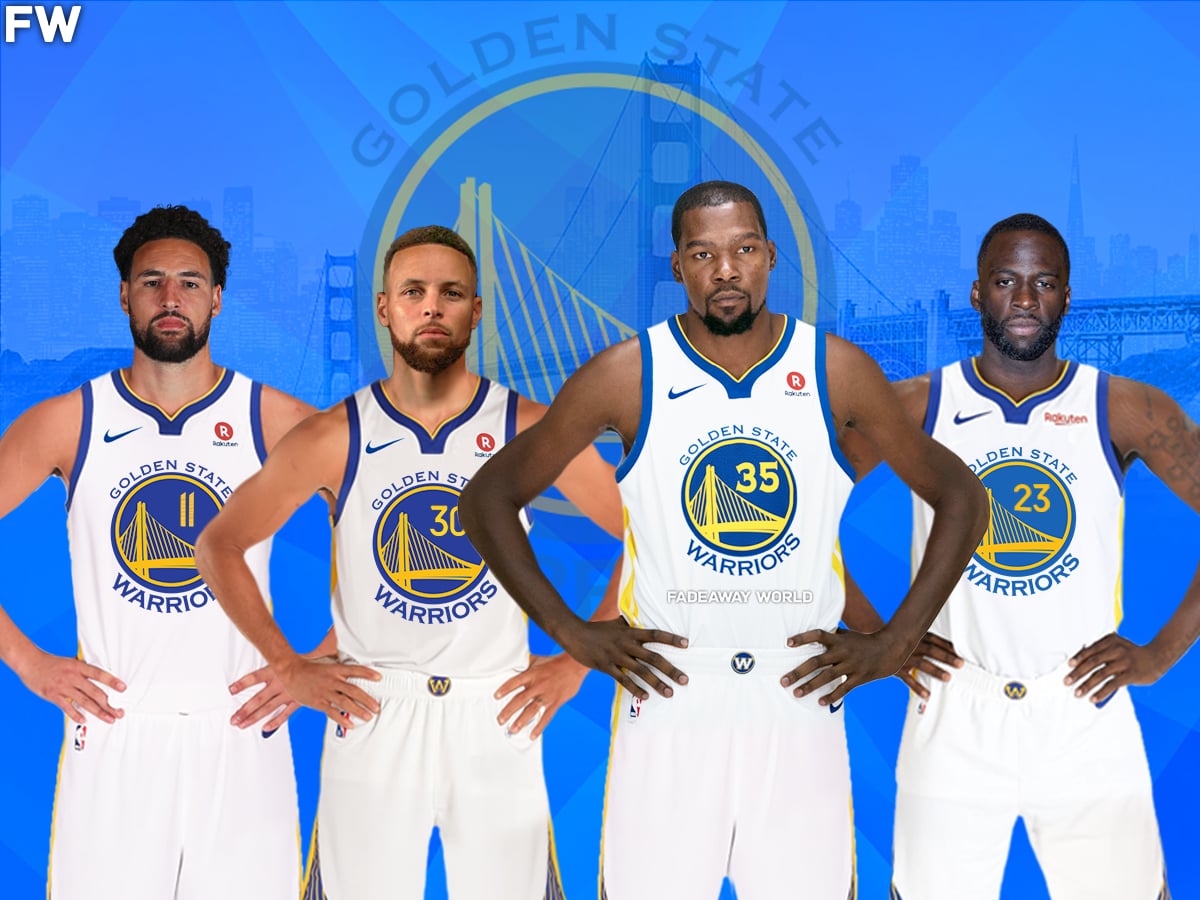
When the Golden State Warriors signed Kevin Durant in the summer of 2016, they went from being a beloved team of sharpshooters to the most hated team in the league almost overnight. Coming off a 73-9 season that ended in a devastating Finals loss to the Cleveland Cavaliers, the Warriors were already a powerhouse. Adding Durant, one of the league’s top talents, felt like overkill to many fans. It was the equivalent of hitting cheat mode in a video game.
The 2016-17 season saw the Warriors dominate the league, finishing with a 67-15 record. Their offensive prowess was off the charts, with Stephen Curry, Klay Thompson, and Durant forming an unstoppable trio. Critics claimed they had ruined the competitive balance of the NBA, making the season feel like a foregone conclusion.
In the playoffs, the Warriors breezed through the competition, sweeping their first three opponents before dispatching the Cavaliers in five games in the Finals. Their dominance was undeniable, but it was also what made them so despised. Fans of other teams saw them as an unbeatable juggernaut that had destroyed any hope of parity in the league.
Off the court, the Warriors were equally polarizing. Draymond Green’s brashness and frequent trash-talking made him a lightning rod for criticism. Durant’s decision to join a team that had just beaten his former team, the Oklahoma City Thunder, in the playoffs was seen by many as a betrayal. The “superteam” narrative surrounding the Warriors turned them into the villains of the NBA, and their 2017 championship run only solidified that status.
Love them or hate them, the 2017 Golden State Warriors were a team that left no one indifferent, embodying both the pinnacle of basketball excellence and the frustrations of fans longing for a more level playing field.
2. 2021 Phoenix Suns
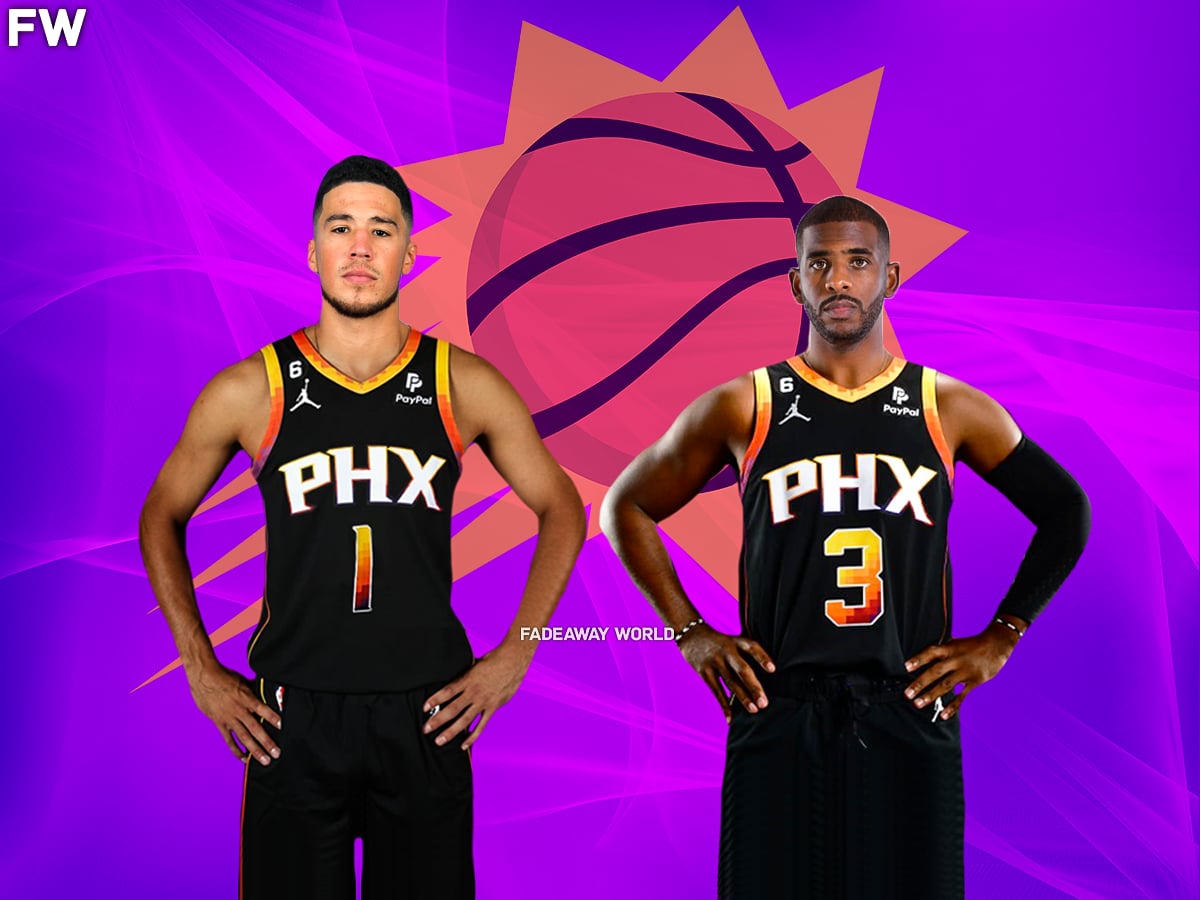
The 2021 Phoenix Suns were a team that quickly found themselves under the microscope of NBA fans and critics alike. Rising from a decade-long playoff drought, they became one of the league’s most hated teams, thanks to a mix of on-court success, perceived arrogance, and some controversial moments.
After acquiring Chris Paul in the offseason, the Suns transformed into a legitimate contender, finishing the regular season with a 51-21 record, second-best in the Western Conference. Paul’s veteran leadership, combined with Devin Booker’s scoring prowess, turned the Suns into a well-oiled machine. However, their rapid ascent to the top rubbed many fans the wrong way.
The Suns’ path to the NBA Finals was not without controversy. In the first round, they faced the Los Angeles Lakers, who were hampered by injuries to key players LeBron James and Anthony Davis. Critics argued that the Suns’ victory was more about the Lakers’ bad luck than Phoenix’s skill. The narrative continued in the second round against the Denver Nuggets, who were missing their star guard Jamal Murray. By the time they reached the Western Conference Finals against the Los Angeles Clippers, who were without Kawhi Leonard, many fans felt the Suns had taken advantage of a weakened field.
Adding to the animosity was the behavior of some Suns players. Chris Paul, known for his fiery competitiveness, often walked a fine line between passion and pettiness, which didn’t endear him to opposing fans. Devin Booker, while undeniably talented, was perceived as cocky and overly confident by some, especially after his dust-up with Lakers’ fans and his “be legendary” mantra.
The Suns’ Finals run, where they ultimately fell to the Milwaukee Bucks in six games, was marked by dramatic highs and lows. The excitement of their unexpected success was often overshadowed by the backlash from fans who viewed their journey as less than legitimate due to the injuries plaguing their opponents.
In the end, the 2021 Phoenix Suns became a lightning rod for debate. They were either a Cinderella story of a team that overcame adversity to reach the Finals or the beneficiaries of an unprecedented string of good fortune. Either way, they secured their spot as one of the most hated teams on our list, sparking discussions and emotions across the NBA landscape.
3. 2021 Brooklyn Nets
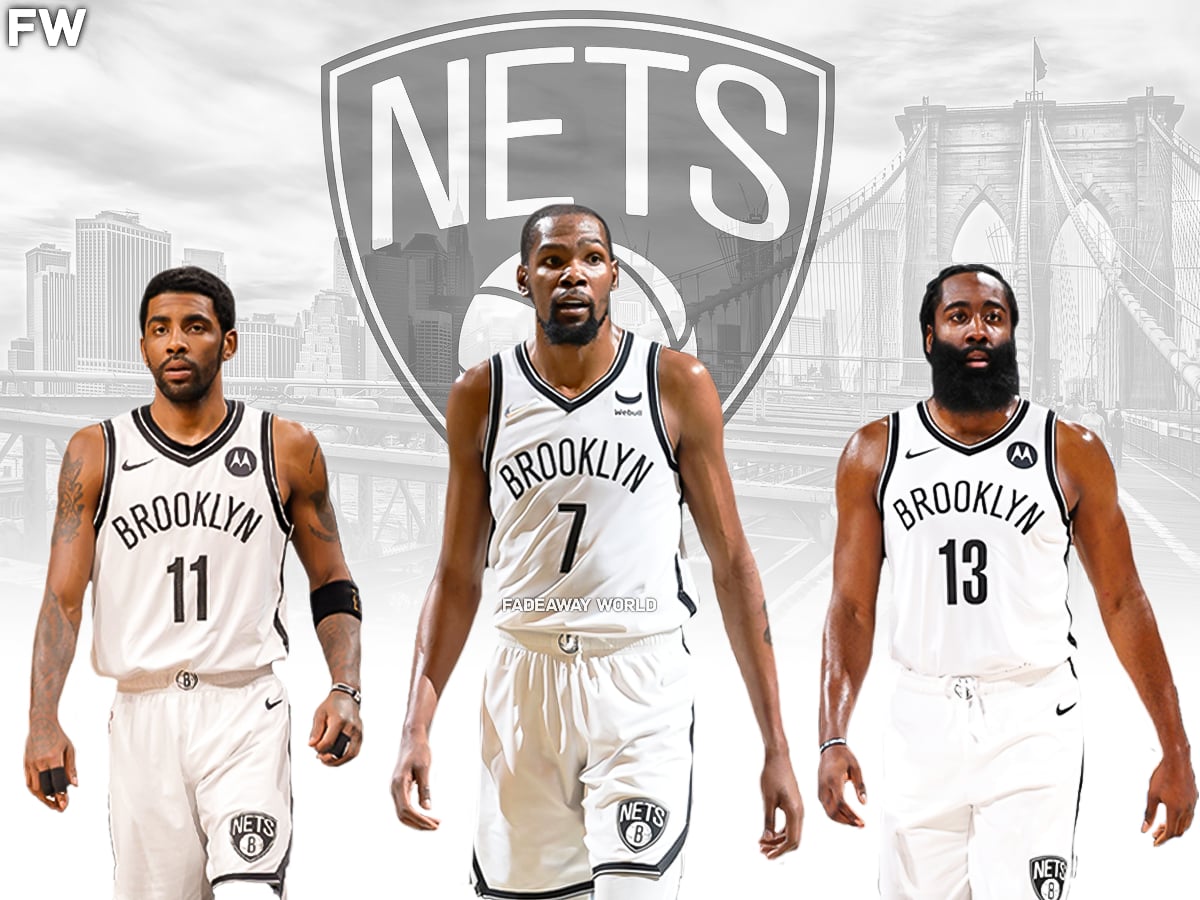
The 2021 Brooklyn Nets might be the very definition of a “superteam” that fans love to hate. When the franchise managed to assemble a trio of Kevin Durant, Kyrie Irving, and James Harden, they became the epitome of modern NBA star power—and the target of widespread animosity.
The Nets’ journey to infamy began with the acquisitions of Durant and Irving in 2019. Adding James Harden in a blockbuster trade midway through the 2020-21 season turned the Nets into an offensive juggernaut, with three of the league’s most prolific scorers on one team. While Brooklyn fans rejoiced, the rest of the NBA fanbase watched with a mix of awe and disdain. The perception was that the Nets had taken the easy route to success, relying on a collection of superstar talent rather than building a team organically.
Throughout the season, the Nets displayed moments of brilliance, finishing with a 48-24 record, good for second in the Eastern Conference. Their high-powered offense was nearly unstoppable, but their defensive struggles and frequent absences of their star trio due to injuries and personal reasons fueled the narrative that they were a fragile superteam. Fans and analysts alike questioned their ability to play together consistently when it mattered most.
The playoffs only intensified the scrutiny. In the first round, the Nets easily dispatched the Boston Celtics, but their second-round matchup against the Milwaukee Bucks turned into a battle. Despite missing Irving due to injury and having a hobbled Harden, the Nets pushed the series to seven games, with Durant delivering some historic performances. However, their eventual elimination sparked a wave of schadenfreude from fans who were eager to see the “superteam” fail.
Off the court, the personalities of the Nets’ stars didn’t help their case. Kyrie Irving’s frequent controversial statements and unpredictable behavior, combined with Harden’s forced exit from Houston, painted a picture of a team led by mercurial and polarizing figures. Even Durant, despite his undeniable talent, carried the baggage of previous criticisms for joining the 73-win Golden State Warriors.
Ultimately, the 2021 Brooklyn Nets were a team that embodied the era of player empowerment and superteams, a reality that didn’t sit well with many traditional basketball fans. Their mix of superstar talent, off-court drama, and playoff shortcomings made them one of the most hated teams in recent memory, proving that sometimes, too much talent can be as polarizing as it is electrifying.
4. 2018 Boston Celtics
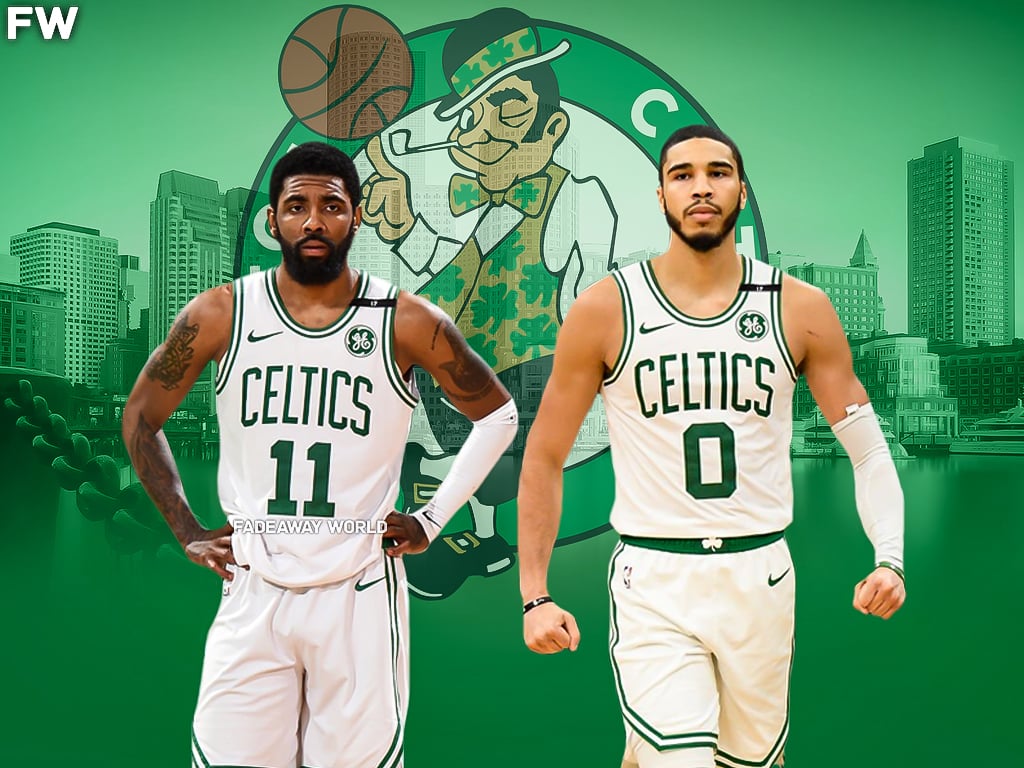
The 2018 Boston Celtics found themselves in an unusual position—they were both loved and loathed, often in equal measure. This young, scrappy team, led by head coach Brad Stevens, overachieved in the regular season and became a force in the playoffs, sparking both admiration and resentment from fans across the league.
The Celtics’ journey to infamy began with a dramatic offseason. They traded fan-favorite Isaiah Thomas for superstar guard Kyrie Irving, a move that sent shockwaves through the NBA. The addition of Gordon Hayward further bolstered their roster, making them instant contenders in the Eastern Conference. However, Hayward’s devastating injury on opening night against the Cleveland Cavaliers cast a shadow over their season.
Despite this setback, the Celtics finished the regular season with a 55-27 record, thanks to the emergence of young stars like Jayson Tatum and Jaylen Brown, as well as the steady leadership of Al Horford. Brad Stevens’ coaching acumen was widely praised, but it also became a source of irritation for fans of rival teams, who felt the media lavished too much praise on the Celtics.
The playoffs were where the Celtics truly became a polarizing force. They navigated their way to the Eastern Conference Finals without their two biggest stars, Irving and Hayward. Along the way, they dispatched the Milwaukee Bucks in seven games and the Philadelphia 76ers in five, with Tatum and Brown showcasing their potential as future superstars.
Their matchup against LeBron James and the Cleveland Cavaliers in the Eastern Conference Finals was a defining moment. The young Celtics pushed the series to seven games, with Tatum’s poster dunk on LeBron becoming an iconic moment. However, their ultimate loss to the Cavaliers left a bitter taste for many fans who felt the Celtics had been prematurely anointed as the next great team.
Off the court, the Celtics’ combination of brash confidence and underdog status rubbed some fans the wrong way. The media’s constant praise of Brad Stevens’ coaching and the young core’s potential felt excessive to those who saw the Celtics as being overhyped. Additionally, Kyrie Irving’s enigmatic personality and his absence during the playoff run created an air of drama and uncertainty around the team.
The 2018 Boston Celtics were a study in contrasts—a team that defied expectations, developed a young core, and came tantalizingly close to the NBA Finals, yet also one that garnered a fair share of animosity along the way. Their mix of potential, media hype, and playoff heartbreak made them one of the most compelling and polarizing teams of the last 10 years.
5. 2016 Houston Rockets
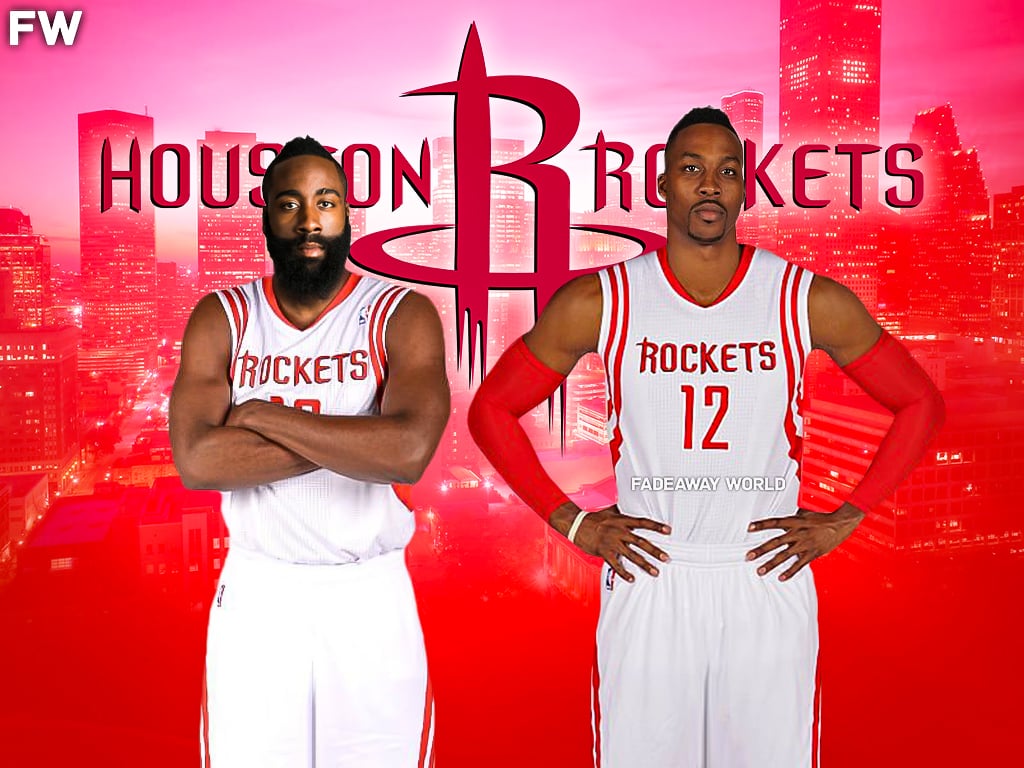
The 2016 Houston Rockets were a team that managed to draw the ire of fans and analysts alike. A mix of underachievement, on-court antics, and locker room drama made this team one of the most disliked in recent NBA history.
Coming off a Western Conference Finals appearance in 2015, expectations were high for the Rockets heading into the 2015-16 season. With James Harden at the helm, fresh off an MVP runner-up finish, and Dwight Howard anchoring the defense, the Rockets were expected to be contenders. However, the season quickly turned sour.
The Rockets struggled to find consistency, finishing with a disappointing 41-41 record and barely making the playoffs as the eighth seed. Their underperformance was a significant factor in the growing dislike for the team. Fans and analysts criticized their lack of effort and cohesion, particularly pointing fingers at Harden and Howard. Harden’s defensive lapses became fodder for viral memes, while Howard’s inability to stay healthy and his perceived lack of effort frustrated fans.
Off the court, the Rockets were a hotbed of drama. Reports of tension between Harden and Howard surfaced, with both stars seemingly unable to coexist. The team’s lack of chemistry was evident, and head coach Kevin McHale was fired just 11 games into the season, replaced by interim coach J.B. Bickerstaff. The mid-season coaching change only added to the sense of turmoil surrounding the Rockets.
In the playoffs, the Rockets’ woes continued. They faced the top-seeded Golden State Warriors in the first round, a matchup that highlighted the stark contrast between the disciplined, cohesive Warriors and the disjointed Rockets. Houston managed to steal one game but ultimately fell in five, exiting the playoffs with a whimper.
Adding to the animosity was the perception of the Rockets’ style of play. Harden’s isolation-heavy offense and frequent trips to the free-throw line were criticized as boring and unwatchable by some fans. His tendency to draw fouls, often through controversial means, led to accusations of flopping and gaming the system.
The 2016 Houston Rockets epitomized a team that fell far short of its potential, plagued by internal discord and an unappealing style of play. Their mix of high expectations, underachievement, and off-court drama made them a lightning rod for criticism and one of the most hated teams in the NBA during that season.
6. 2022 Memphis Grizzlies
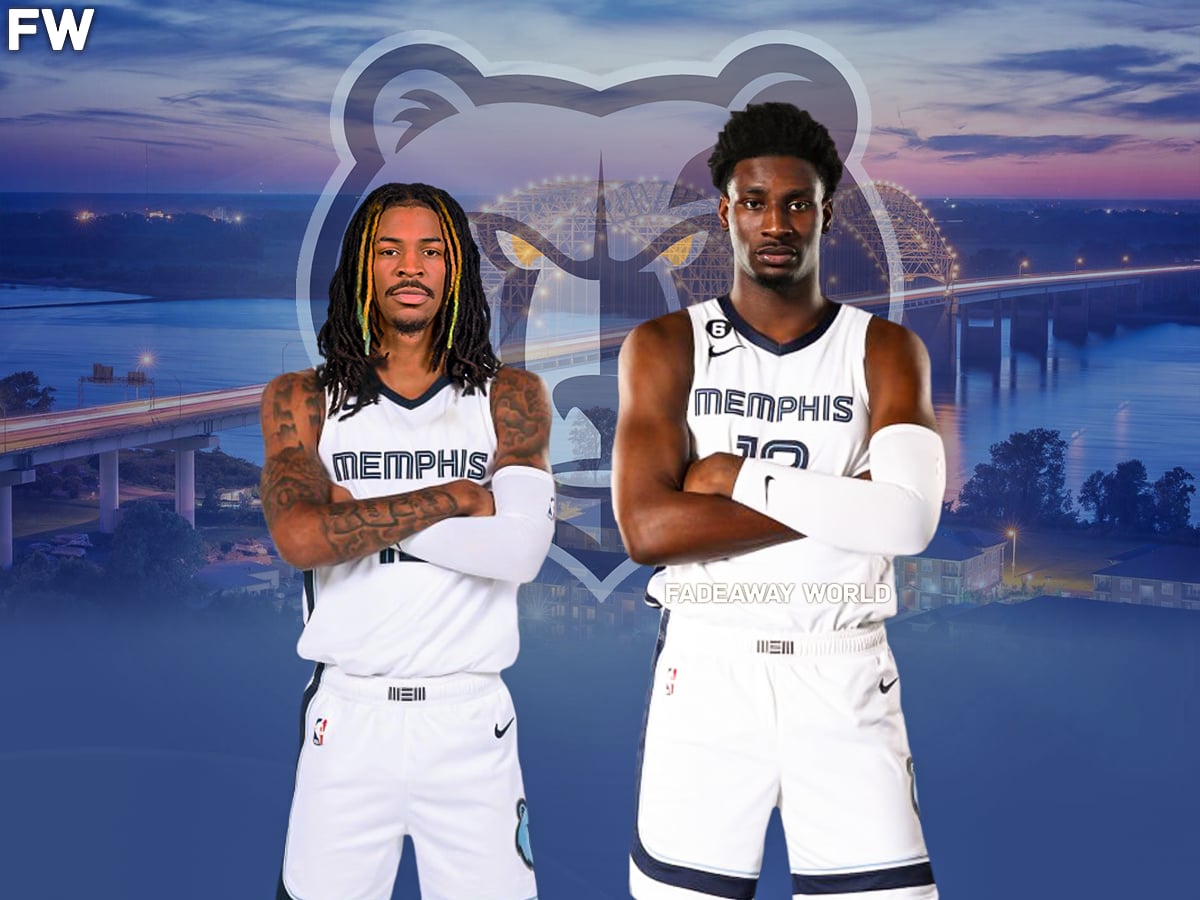
The 2022 Memphis Grizzlies emerged as one of the NBA’s most polarizing teams, embodying a brash and bold style of play that either earned them fervent admiration or intense dislike. Led by the electric Ja Morant, the Grizzlies’ mix of youthful exuberance and a chip-on-the-shoulder mentality quickly made them both a darling and a target in the league.
The Grizzlies finished the 2021-22 regular season with an impressive 56-26 record, securing the second seed in the Western Conference. Their rise was fueled by a deep roster of young talent, including Morant, Jaren Jackson Jr., and Desmond Bane, all playing with a level of confidence that belied their age. However, it was this very confidence that rubbed many fans the wrong way.
Ja Morant, with his high-flying dunks and fearless play, became the face of the Grizzlies’ resurgence. While his talent was undeniable, his on-court swagger and social media presence often drew criticism. Morant wasn’t shy about expressing himself, whether through celebratory dances, trash-talking opponents, or calling out critics online. This bravado endeared him to Memphis fans but alienated many others who saw his antics as arrogant.
The Grizzlies’ physical style of play also contributed to their villain status. They weren’t afraid to get chippy with opponents, leading to several high-profile altercations throughout the season. Dillon Brooks, in particular, gained a reputation as an instigator, often finding himself in the middle of on-court scuffles and verbal spats. This aggressive approach, while effective, painted the Grizzlies as bullies to some fans and analysts.
Their playoff run further cemented their status as one of the most hated teams. In the first round, they faced the Minnesota Timberwolves in a heated series that saw multiple ejections and confrontations. The Grizzlies eventually prevailed in six games, but their hard-nosed tactics left a lasting impression. In the second round, they faced the Golden State Warriors, a series marked by intense physicality and drama. The Grizzlies’ rough play led to several contentious moments, including Brooks’ flagrant foul that injured Warriors’ guard Gary Payton II.
In the end, the 2022 Memphis Grizzlies were a team that thrived on their underdog status, using it as fuel to punch above their weight. Their combination of youthful exuberance, physical play, and unapologetic confidence made them one of the most exciting yet most hated teams in the NBA. Whether you loved their swagger or loathed their arrogance, the Grizzlies made sure you couldn’t ignore them.
7. 2022 Los Angeles Lakers
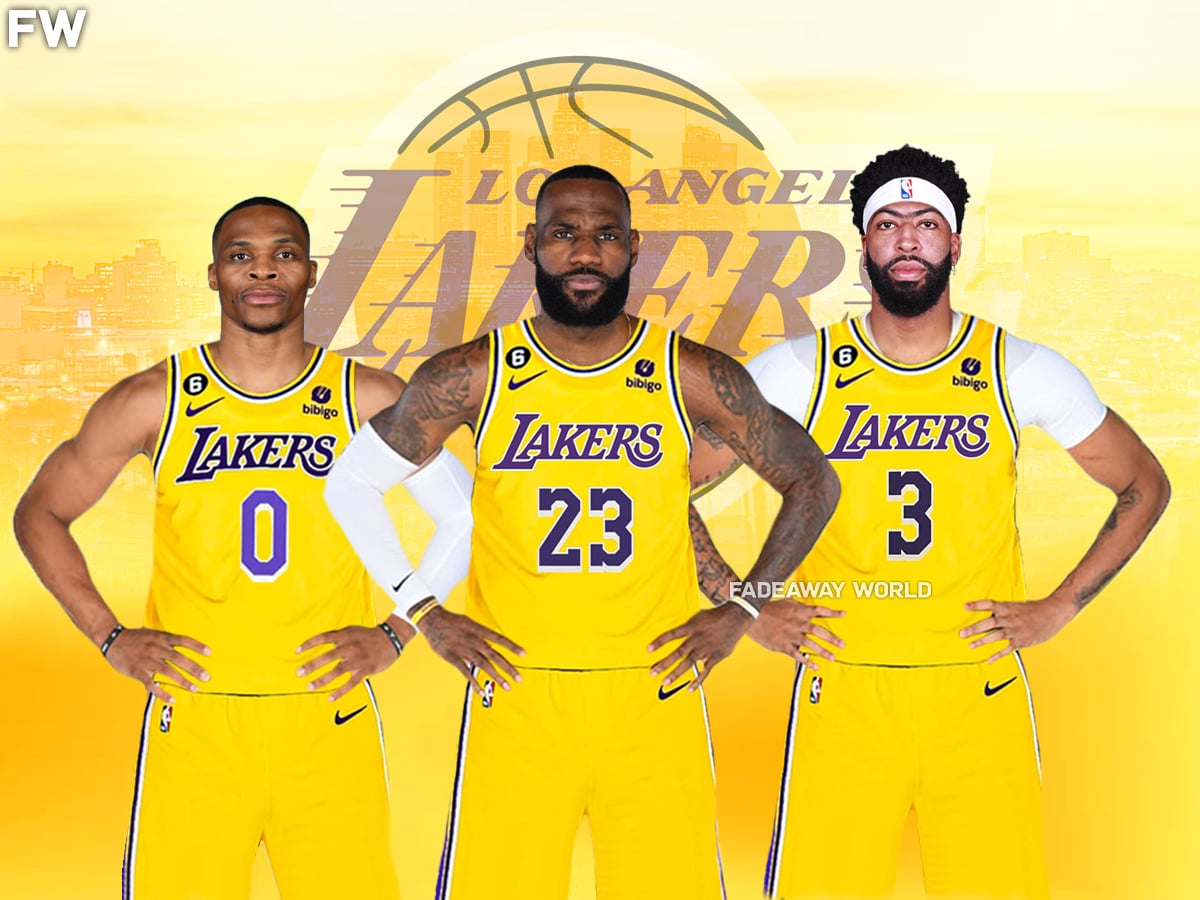
The 2022 Los Angeles Lakers were a team that epitomized high expectations and crushing disappointment, making them one of the most hated teams of the year. With a star-studded roster featuring LeBron James, Anthony Davis, and the addition of Russell Westbrook, the Lakers were supposed to be championship contenders. Instead, they became a cautionary tale of how things can go horribly wrong.
The offseason acquisition of Westbrook was meant to form a new “Big Three” in Los Angeles. However, from the start, chemistry issues plagued the team. Westbrook’s ball-dominant style clashed with LeBron’s playmaking, and the team struggled to find a rhythm. Injuries to key players like Davis only compounded their problems, leading to an inconsistent and frustrating season.
The Lakers’ on-court struggles were hard to ignore. They finished with a disappointing 33-49 record, missing the playoffs entirely. For a team with such high expectations, this was a colossal failure. The poor performance led to widespread criticism from fans, analysts, and former players. The Lakers’ games, often nationally televised, became must-watch events for all the wrong reasons—fans tuned in to see the drama and dysfunction.
LeBron James, despite putting up impressive individual numbers, faced scrutiny for his leadership. Critics pointed out his body language and perceived lack of effort in certain games. Westbrook, too, became a lightning rod for criticism. His high turnover rate and poor shooting performances were frequently highlighted, making him a scapegoat for the team’s woes. The media’s constant coverage of the Lakers’ failures only fueled the animosity towards the team.
Off the court, the Lakers were a soap opera. There were reports of internal discord, with rumors of tension between Westbrook and head coach Frank Vogel. The team’s front office, led by Rob Pelinka, was criticized for its roster construction and inability to make meaningful midseason moves to improve the squad. The decision to prioritize veteran players over younger, more dynamic talent backfired, leading to a roster that was often derided as old and slow.
The 2022 Los Angeles Lakers were a perfect storm of hype, failure, and drama. Their inability to live up to expectations, combined with the high-profile nature of their roster, made them one of the most talked-about and hated teams of the year. They served as a reminder that in the NBA, star power alone isn’t enough—you need chemistry, health, and a well-constructed roster to succeed.
8. 2021 Philadelphia 76ers
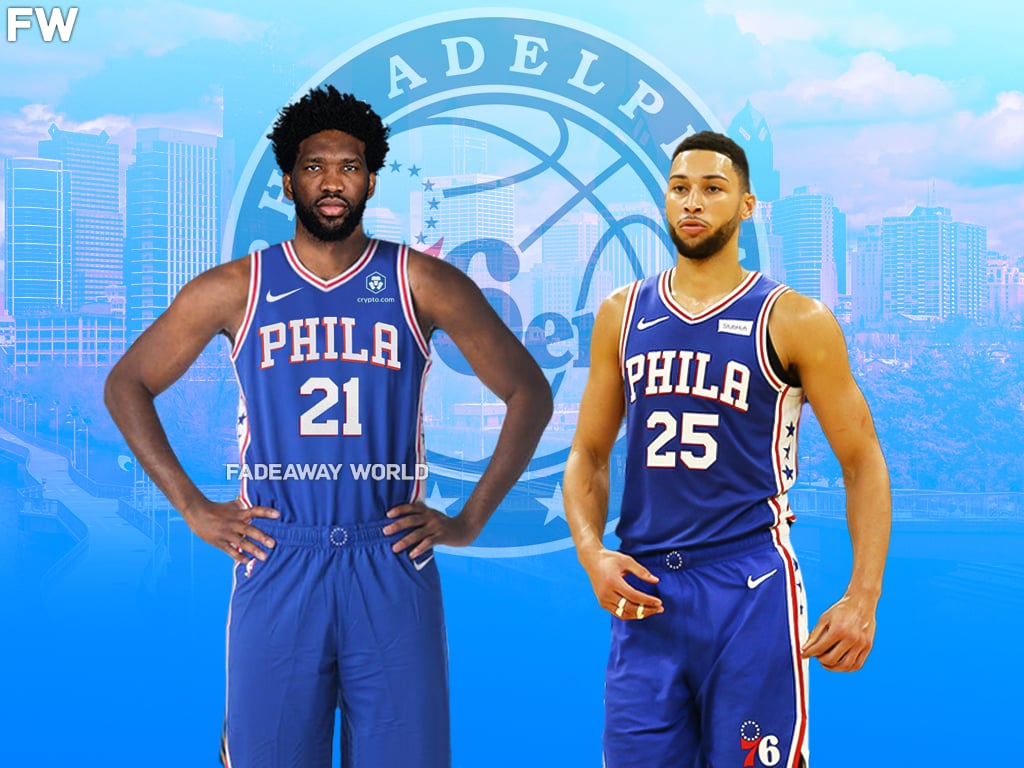
The 2021 Philadelphia 76ers were a team that inspired a mix of hope, frustration, and ultimately, a considerable amount of animosity. Known for their “Trust the Process” mantra, the 76ers entered the 2020-21 season with high expectations, buoyed by the continued growth of their stars Joel Embiid and Ben Simmons. However, their playoff collapse and internal strife made them one of the most disliked teams of the year.
The 76ers finished the regular season atop the Eastern Conference with a 49-23 record. Joel Embiid had an MVP-caliber season, dominating opponents with his scoring, rebounding, and defensive presence. Ben Simmons, on the other hand, continued to be a polarizing figure. While his defensive prowess and playmaking were lauded, his offensive limitations, particularly his reluctance to shoot, became a focal point of criticism.
The Sixers’ playoff run started strong, as they easily dispatched the Washington Wizards in the first round. However, their second-round series against the Atlanta Hawks became a nightmare. Despite being heavy favorites, the 76ers struggled to close out games, leading to a seven-game series that exposed their vulnerabilities.
Game 7 of the series became infamous for a single moment that seemed to encapsulate the 76ers’ issues: Ben Simmons passing up an open dunk late in the game, opting instead to pass to Matisse Thybulle, who was fouled and missed one of his free throws. This moment, coupled with Simmons’ poor free-throw shooting throughout the series, drew immense backlash from fans and analysts. The 76ers lost the series, and Simmons became the scapegoat for the team’s failure.
The fallout from the playoff exit was dramatic. Simmons faced harsh criticism from fans, media, and even his own teammates and coach. Joel Embiid’s post-game comments suggested a lack of faith in Simmons, and head coach Doc Rivers’ ambiguous statements about Simmons’ future with the team fueled trade rumors. The internal discord was palpable, and Simmons’ subsequent trade request further divided the fanbase.
Off the court, the 76ers’ situation grew even more contentious. Simmons’ reported refusal to participate in team activities and his holdout at the beginning of the next season turned into a public saga. The drama surrounding his situation overshadowed the team’s on-court efforts and became a constant topic of discussion.
The 2021 Philadelphia 76ers embodied the frustrations of unfulfilled potential and internal strife. Their regular-season success only highlighted their playoff shortcomings, and the drama surrounding Ben Simmons turned them into a team that was easy to hate. Fans of the 76ers and the broader NBA watched with a mix of fascination and disdain as the team’s implosion played out both on and off the court, solidifying their place as one of the most hated teams of the last 10 years.
9. 2020 Los Angeles Clippers
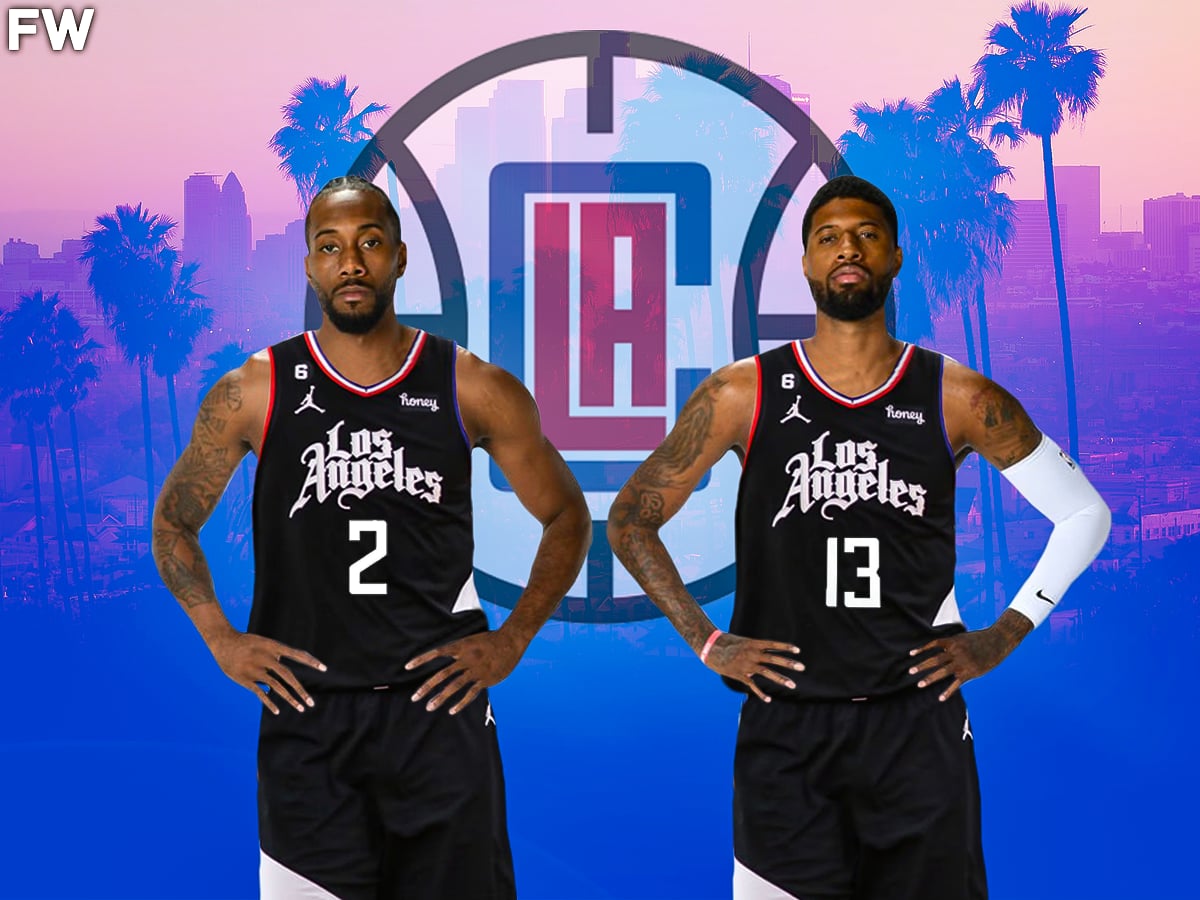
The 2019-20 Los Angeles Clippers were a team that promised so much but delivered so little, making them one of the most hated teams of the year. With the acquisitions of Kawhi Leonard and Paul George, the Clippers were instantly vaulted into championship contention. However, their inability to live up to the hype and the manner in which they collapsed made them a target of widespread scorn.
The Clippers finished the regular season with a 49-23 record, second-best in the Western Conference. Their deep and talented roster, featuring players like Lou Williams, Montrezl Harrell, and Patrick Beverley, was expected to dominate. The team’s brash confidence, epitomized by Beverley’s trash-talking and the overall swagger of the squad, didn’t sit well with many fans who viewed them as overly arrogant.
Kawhi Leonard, fresh off a championship with the Toronto Raptors, brought his stoic demeanor and clutch performances, while Paul George was expected to provide the perfect complement. However, George’s inconsistent play, especially in the playoffs, began to draw criticism. His self-proclaimed nickname “Playoff P” became a source of mockery as he failed to perform in crucial moments.
The Clippers’ playoff run started with a hard-fought series against the Dallas Mavericks, but it was their second-round matchup against the Denver Nuggets that sealed their fate as one of the most hated teams. Leading the series 3-1, the Clippers seemed poised to advance to the Western Conference Finals. However, they squandered the lead, losing three consecutive games in spectacular fashion. The Game 7 loss, where they blew a double-digit lead, was the culmination of their collapse. George’s poor shooting and the team’s lack of cohesion were glaring issues that led to their downfall.
Off the court, the Clippers’ locker room issues came to light, with reports of tension between the star players and the supporting cast. The perceived preferential treatment for Leonard and George, including load management and special travel arrangements, created rifts within the team. These issues further fueled the narrative that the Clippers were a dysfunctional and unlikable team.
Adding to the animosity was the Clippers’ rivalry with the Los Angeles Lakers. With both teams expected to clash in the Western Conference Finals, the Clippers’ early exit was seen as a failure to live up to the city’s high expectations. Lakers fans, already disdainful of the upstart Clippers, reveled in their misfortune, amplifying the hatred directed at the team.
10. 2018 Oklahoma City Thunder
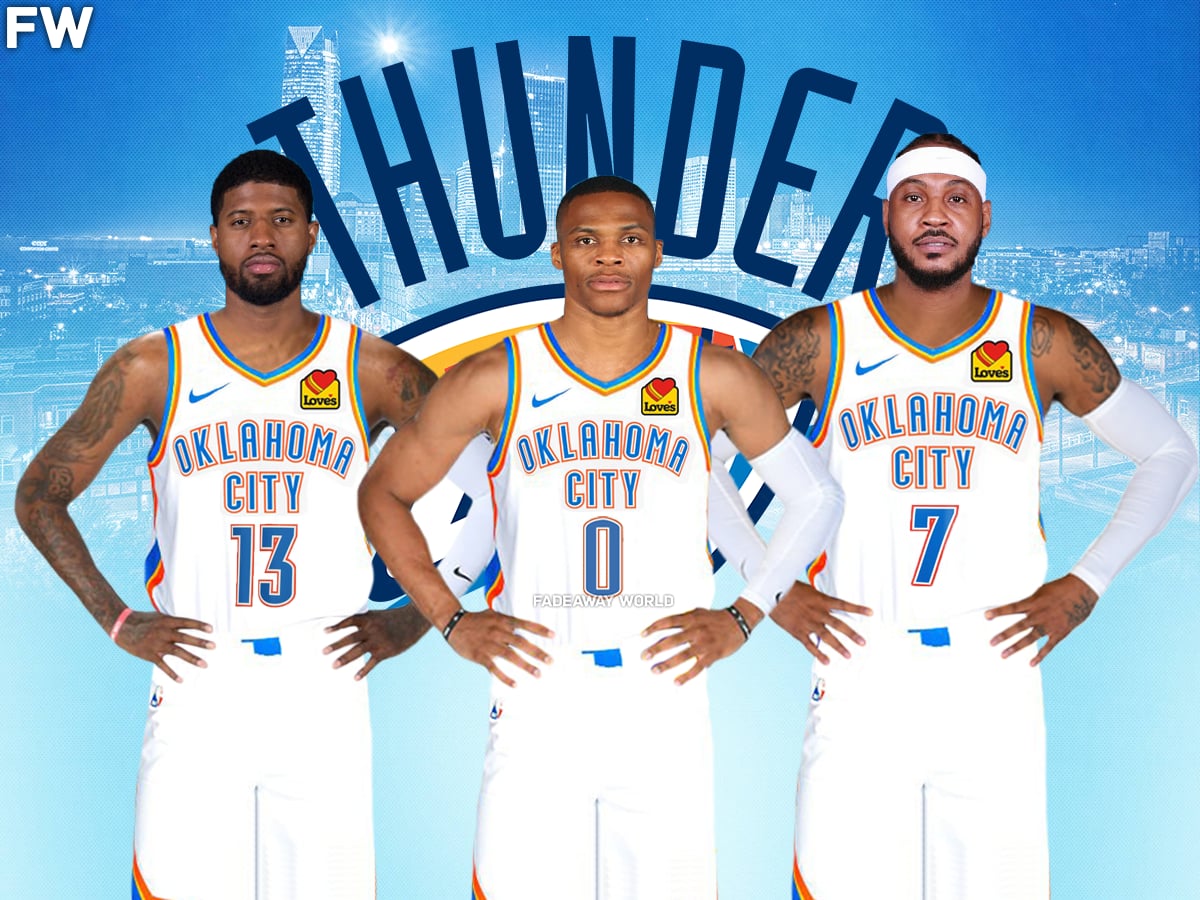
The 2017-18 Oklahoma City Thunder were a team that managed to stir a significant amount of animosity in the NBA community. After a disappointing 2016-17 season where Russell Westbrook’s individual brilliance couldn’t translate to team success, the Thunder made bold moves to surround him with more talent. The acquisitions of Paul George and Carmelo Anthony were supposed to turn the Thunder into a powerhouse, but instead, they became one of the most polarizing teams of the decade.
The Thunder finished the regular season with a 48-34 record, securing the fourth seed in the Western Conference. While this was an improvement, it fell short of the lofty expectations set by the formation of their new “Big Three.” The team’s inconsistency and struggles to find chemistry were evident throughout the season, leading to frustration among fans and critics alike.
Russell Westbrook, known for his fiery and relentless playing style, was both a hero and a villain. His triple-double averages were historic, but his high usage rate and sometimes erratic decision-making drew criticism. Paul George, brought in to be the second star, had moments of brilliance but also struggled with consistency. Carmelo Anthony, once a prolific scorer, had difficulty adapting to a lesser role, leading to inefficient performances and defensive liabilities.
The Thunder’s playoff run was short-lived and highlighted their shortcomings. Facing the Utah Jazz in the first round, they were expected to advance easily. However, the series revealed deeper issues within the team. The Thunder fell behind 3-1 in the series, and while they managed to force a Game 6, they ultimately lost to the Jazz, led by rookie sensation Donovan Mitchell. The series exposed their lack of cohesion, poor defensive communication, and inability to perform under pressure.
Off the court, the Thunder’s drama added to their notoriety. The tension between Westbrook and the media was a constant storyline, with his curt responses and sometimes dismissive attitude during interviews painting him as a polarizing figure. Additionally, the team’s high-profile nature and the expectation to win after forming a superteam meant they were constantly under the microscope.
The 2017-18 Oklahoma City Thunder also faced backlash due to the perception of their “superteam” approach. Fans of smaller market teams and traditionalists who valued team development over star accumulation saw the Thunder as emblematic of what they disliked about the modern NBA. This sentiment was only amplified by their failure to meet expectations, turning disappointment into disdain.
In the end, the 2017-18 Oklahoma City Thunder were a lesson in the complexities of building a team around multiple stars. Their inability to mesh on the court, combined with the high expectations and subsequent underperformance, made them one of the most hated teams on our list. They served as a reminder that talent alone isn’t enough to guarantee success, and that sometimes, the pressure to win can lead to a team’s undoing.

